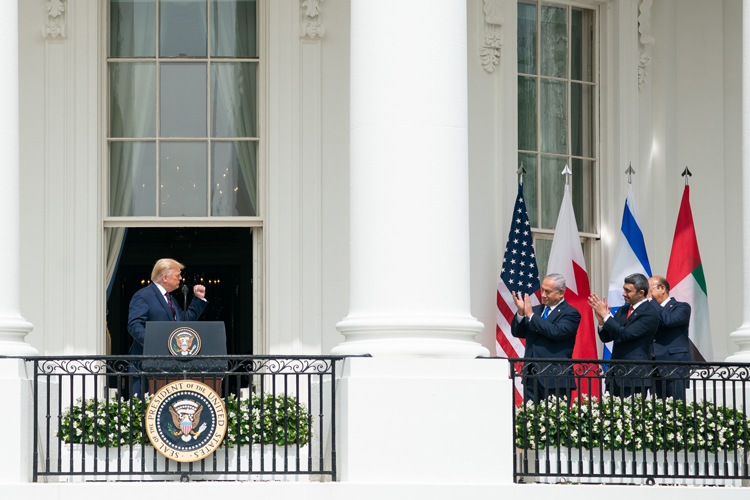
As President-elect Donald J. Trump prepares to take office again amid a turbulent Middle Eastern landscape, he has declared his intention to revive and expand his earlier Middle East peace initiatives, particularly the Abraham Accords. Political observers expect Trump to focus heavily on resolving regional conflicts and strengthening alliances that foster stability, with the Abraham Accords 2.0 likely serving as a foundation.
The original Abraham Accords, brokered during Trump’s first term, led to historic normalization agreements between Israel and four Arab nations — the United Arab Emirates, Bahrain, Morocco, and Sudan. According to analysts, Trump’s renewed efforts could expand these accords, potentially incorporating Saudi Arabia and other nations into a larger coalition of peace. The aim is to foster stability by creating broader partnerships between Israel and the Arab world.
Experts suggest that Trump’s ambitions extend beyond diplomacy alone. Neil Quilliam, a Middle East expert at Chatham House, highlighted that Trump’s focus includes ending ongoing conflicts involving Israel, particularly those with Hamas in Gaza and Hezbollah in Lebanon. However, Quilliam notes that progress on these fronts will likely hinge on Trump’s ability to establish a viable Palestinian framework, as Saudi Arabia and other nations have shown hesitancy without such assurances.
During his initial term, Trump was known for his strong alliances with Gulf leaders and for making Saudi Arabia his first overseas destination as president. Saudi Crown Prince Mohammed bin Salman, among others, has welcomed Trump’s return, with Gulf leaders expecting that Trump’s “deal-maker” approach may again benefit regional interests. Brian Hook, a former special envoy to the Middle East under Trump, has confirmed that the “deal of the century” plan, a proposal aimed at Israeli-Palestinian peace, may also be reintroduced in a modified form. Despite recent conflicts, including the Israel-Gaza war, Hook believes Trump’s return could reinvigorate the two-state solution, albeit with cautious optimism.
Trump himself has expressed confidence in his ability to achieve “real” and “lasting” peace in the region, reiterating in a recent Al Arabiya interview that the current conflicts might have been avoided under his leadership. As Trump’s team readies for this next chapter, the prospect of a more robust Abraham Accords, expanded to include additional countries, appears central to his vision. Observers note that Trump’s rapport with Gulf and Middle Eastern leaders could position him uniquely to facilitate cooperation and security, potentially heralding a new era of peace and alignment in the region.
The Abraham Accords 2.0 initiative signals a renewed focus on diplomatic engagement and collaborative security efforts in the Middle East. For allies across the region, Trump’s return to the White House represents a chance to revitalize partnerships and enhance stability. With expectations high, the next phase of the Abraham Accords could prove instrumental in achieving the lasting peace that has eluded the region for decades, setting a precedent for diplomatic solutions and expanded cooperation across borders.